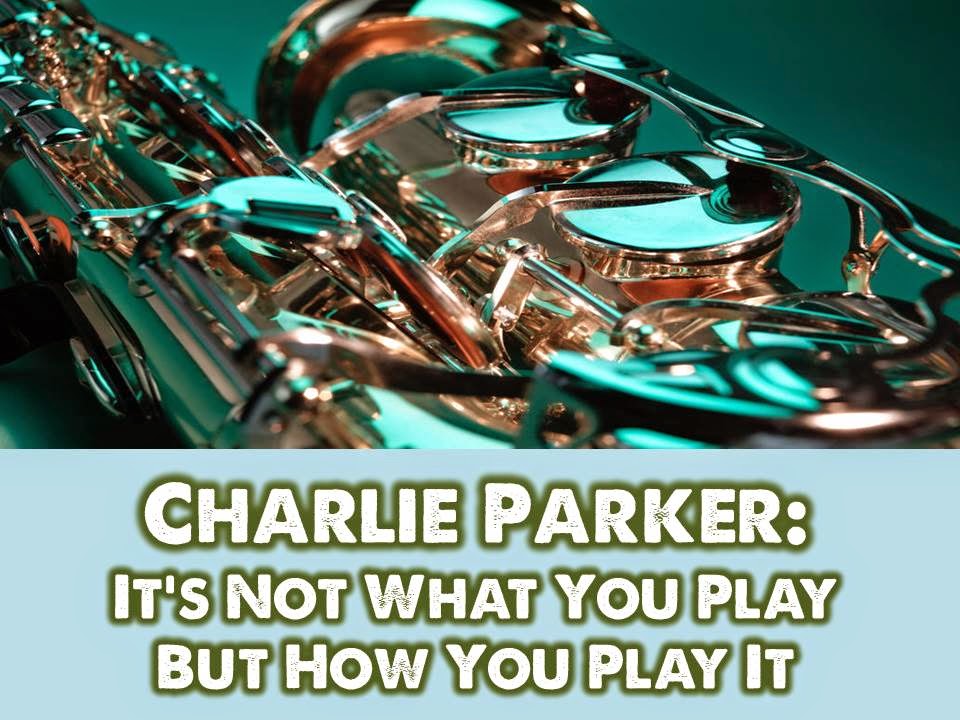Charlie Parker: It’s Not What You Play But How You Play It
In honor of the birthday of Charlie “Bird” Parker I want to
talk about his unmatched rhythmic approach and melodic phrasing.
If you ever want your mind blown just listen to about 30
seconds or less of Charlie Parker. You
will hear him play things on the saxophone that are still to this day ahead of
their time. Yes his solos have been
meticulously transcribed and committed to memory by most jazz musicians, but if
you’ve ever tried to play along with the recording after you’ve memorized one
of his solos, you realize there is something missing in what you’re playing vis
a vis what Bird is playing.
I was playing through Parker’s “Confirmation” recently and
sat down to really understand what he was thinking when he composed the melody.
The melody to many listeners sounds like a solo unto itself and the way he
approaches those fast moving harmonies is dumbfounding. He makes wide interval skips in a short space
of time unlike many musicians who use scales or look for the easiest, closest
note to move to. It’s like he makes it
difficult on purpose which if taken in context was the point.
Back in the early 1940s when Bebop was being formulated by
Charlie Parker, Dizzy Gillespie, Thelonius Monk, Bud Powell, Kenny Clarke and
others, the “boppers” as they were called, tried to “separate the men from the
boys” in jam sessions. They would have “cutting contests” to see who could play
the best. The reigning kings of course
were Bird and Diz.
Aside from his wide interval skips between notes in his
phrases, he has a way of creating space which elongates time and then cramming
notes in a short amount of space at lightning speeds which shortens time. He is exhaustively exploring the extremes of
time, harmony, rhythm and melody.
Charlie Parker’s language permeates jazz and all the music
that came after it. His solos are now
textbooks in music schools. When you
create something of genius proportions it will definitely stand the test of
time. As the graffiti said that was
posted when the news of Bird’s death reached the community, “Bird Lives.”



Comments
Post a Comment